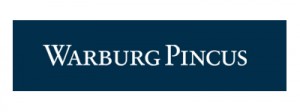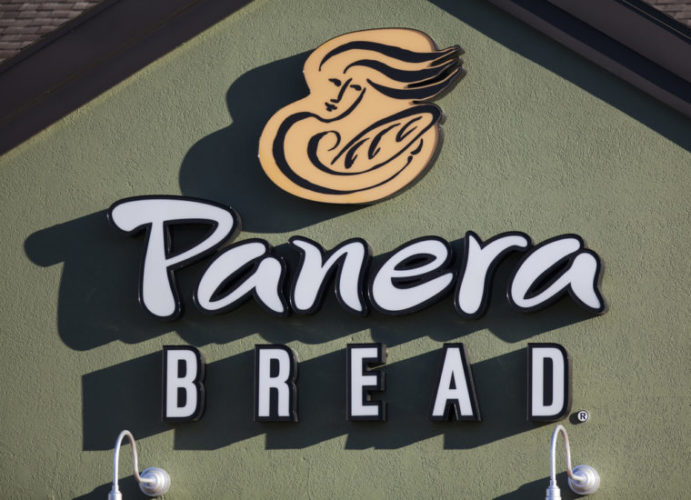 The first morning meeting on May 15 was at Warburg Pincus. Warburg Pincus is one of the top quartile Private Equity (PE) firms, whose value added is mainly from the growth of companies in which it invests. Firstly, he introduced the fundamentals of private equity. Basically, there are three stages of PE firms, which are venture capital, growth/development, and late stage. Warburg Pincus mainly invests in the growth stage. The return of PE is always from two factors—high leverage and fees. Additionally, as the industry becomes mature, the market is more and more specialized. By working for the whole portfolio’s good rather than the sector’s own benefit, Warburg Pincus manages to offset the disadvantage of specialization.
The first morning meeting on May 15 was at Warburg Pincus. Warburg Pincus is one of the top quartile Private Equity (PE) firms, whose value added is mainly from the growth of companies in which it invests. Firstly, he introduced the fundamentals of private equity. Basically, there are three stages of PE firms, which are venture capital, growth/development, and late stage. Warburg Pincus mainly invests in the growth stage. The return of PE is always from two factors—high leverage and fees. Additionally, as the industry becomes mature, the market is more and more specialized. By working for the whole portfolio’s good rather than the sector’s own benefit, Warburg Pincus manages to offset the disadvantage of specialization.
 The second speaker was from Lepercq De Neuflize & Co. He started the presentation with a general introduction of the financial market and a quick survey about potential job positions among students. As finding a job is the very first thing after graduation, he quickly drew our attention. He then introduced two kinds of people: ones who are smart, and ones who have relationships. Focusing on these two kinds of people, he proceeded with lessons that are important all long a career path, and challenges that these people may face in the future. Also, he answered questions concerning career paths, and pointed out possible ways to get the dream job. Corporate treasury, though few of us considered it as a target job during the survey, became a new choice for us after the presentation. The speaker emphasized the importance of getting to know the industry sector and corporate treasury can provide experience and insights if you cannot find a better way.
The second speaker was from Lepercq De Neuflize & Co. He started the presentation with a general introduction of the financial market and a quick survey about potential job positions among students. As finding a job is the very first thing after graduation, he quickly drew our attention. He then introduced two kinds of people: ones who are smart, and ones who have relationships. Focusing on these two kinds of people, he proceeded with lessons that are important all long a career path, and challenges that these people may face in the future. Also, he answered questions concerning career paths, and pointed out possible ways to get the dream job. Corporate treasury, though few of us considered it as a target job during the survey, became a new choice for us after the presentation. The speaker emphasized the importance of getting to know the industry sector and corporate treasury can provide experience and insights if you cannot find a better way.

The last speaker was Professor Steve Wood from Seton Hall University. He introduced public finance investment banking to us. He began with Simon Sinek’s simple but powerful model for inspirational leadership — starting with a golden circle and the question “Why?,” Steve encouraged us to find the root of a problem and think deeply. Firstly, we learned about the four borders of business, which are national laws, ethical moral standards, international law, and business best practices. Then we compared different attitudes about social contracts through the movie The Godfather. When it comes to national power and corporate power, we concluded that today’s global companies are super citizens by analyzing HNA Group.
Next, Steve shared a typical case with us: the City of Flint, Michigan’s Water Crisis. In April 2014, Flint decided to change its water source from Detroit to the Flint River to decrease government financial expense. However, the water contamination of the Flint River caused serious health issues for Flint residents. Officials failed to apply corrosion inhibitors to the water. As a result, there was a series of problems that culminated with lead contamination, creating a serious public health danger.
Finally, we discussed who was to blame in this event and discussed the many lessons we learned from this case. Actually, the root of this problem is that the structure of city-state-federal can cause overlapping and disjointed jurisdictions. The implementation problem made Flint residents have to suffer the pain of diseases caused by polluted water until recently, which reminded us of the great importance of public finance management.
Guest Bloggers: Siwei Chen, Mohan Hong, Chenyi Xu, Mengdi Zhang (GMF 2017)
This is a series of blogs chronicling the experiences of 42 Global Master of Finance (GMF) dual degree students during their two week immersion course in New York and Washington, DC. Each blog will be written by a small subset of students during their experience.





